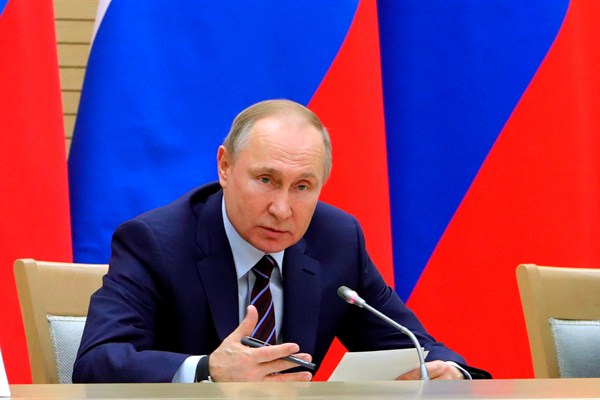If one nice thing can be said about Vladimir Putin, it is that he is a master of political jujitsu. This week, Putin’s skills were on full display after he called for far-reaching constitutional changes that would transfer more power from the presidency to parliament—a move many suspect is really designed to extend his 20-year hold on power. Following Putin’s announcement, Russia’s prime minister, Dmitry Medvedev, and his entire Cabinet abruptly resigned, and hours later Putin named a new prime minister.
Putin is technically barred by constitutional term limits that prohibit more than two consecutive presidential terms. The dramatic reshuffling of Russia’s power structure—which if carried out could weaken the presidency while empowering the Duma, the Russian parliament, as well as an advisory body called the State Council—may pave the way for Putin to retain outsized political influence in Moscow even after his term ends in 2024.
It is too early for any declarations about what the proposed shake-up will ultimately mean for the Kremlin. But it may signal two things. It could be a subtle acknowledgment that Putin understands that his ability to maneuver is somewhat constrained by growing public discontent with corruption and his government’s hard-line tactics at home and abroad. And it could reflect how the political and economic fallout from Western sanctions, imposed over Russia’s ongoing war in eastern Ukraine, is beginning to weigh more heavily on Putin’s calculations.

